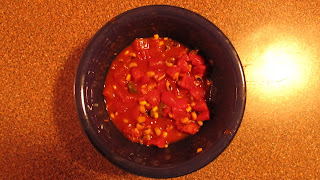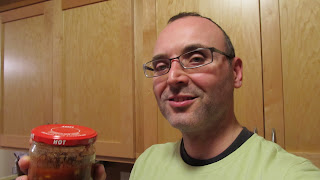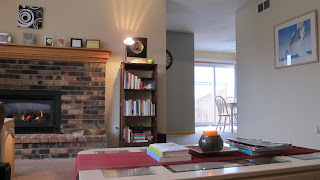My original plan involved
packing everything I could into my blue Chevy Beretta and driving to New Mexico
from Minnesota with the intention of living in Albuquerque or Santa Fe. I was twenty seven years old. I hadn't yet accumulated the years of living
that would now require a U-Haul. I had
traveled to New Mexico two years prior to this trip on a solo sojourn and fell
in love with the state. Like its motto
promises, it enchanted me.
When I got to Albuquerque I
stayed with two friends. It was August
of 1997. I looked for a job and having
had extensive experience in retail customer service and telephone fund raising
I thought I would find a job rather quickly.
I didn't. I had saved enough
money for two months' rent, but the only apartments I could afford with a
possible entry level position were in rough neighborhoods where my friend and
her boyfriend advised me not to live.
I went to New Mexico because,
as Henry David Thoreau stated in Walden about why he built a house in
the woods and lived there for two and half years, “...I wished to live
deliberately, to front only the essential facts of life, and to see if I could
not learn what life had to teach me, and not, when I came to die, discover that
I had not lived”.
When I was still living in
Minnesota I started reading books about Zen—Thich Nhat Hahn's Zen Keys
and Natalie Goldberg's Long Quiet Highway being two of the most
influential--and I fostered a go with the flow as I navigate this canoe called
myself along the river of life philosophy.
It's not what I would now consider Zen, but at the time it's how I
understood it, and it got me to do what I need to do and go where I needed to
go.
After three weeks, I realized
New Mexico wasn't turning out as I had planned.
Sensing that perhaps my quest for a place to live and call home wasn't
in New Mexico, I decided to move on and keep searching. Three friends, Stacy, Josh, and Natasha, whom
I had met three months ago in St. Cloud, Minnesota where I was living for the
past year (prior to that Minneapolis for three years) planned on moving to
Eugene, Oregon. I played with the idea of moving to Eugene and joining them,
but I realized that Eugene was their destination, their dream not mine, and so
I decided to drive back to the Midwest and live in Madison, Wisconsin, a city
many of my friends told me I would like for its liberal and progressive
nature.
My car packed up again, I said
goodbye to New Mexico, and drove to the Grand Canyon where I spent a day
hiking, and then the next day drove through Colorado and Kansas and the corner of Missouri and into
Iowa. I stayed at a hotel in Des Moines
and left early in the morning. Around
9:00, cruising east on Interstate 80, I noticed that my left turn signal wasn't
working. I decided that at the next city
I would pull over and get my signal light fixed.
That city was Iowa City.
I repaired my signal
light. A wire had become loose breaking
the connection. Sensing Iowa City was
unique, I decided to explore the city. I
was after all still looking for a city to call home and I hadn't entirely set
my mind on Madison.
I got a raspberry white
chocolate mocha and a scone at the downtown Java House. I walked through the pedestrian mall. I walked along the sidewalk with the quotes
from the literary stars of fame who had graduated from the Iowa Writers
Workshop. I walked across the campus
with its regal buildings and its hot college guys. I walked along the Iowa River. I stood in awe in front of the Frank Ghery
building. I walked back to the pedestrian mall and ate lunch. I got in my car and drove around the city and
knew I had found my city and my home. I
liked the size, the slower pace, the college, the downtown, the pedestrian
mall, the counterculture hippie liberal vibe,
the progressive politics, the literary and theater scene, the tree-lined
streets, the forest preserve on the northeast edge of the city, and the
cornfields ten minutes away from the center of the city. I wanted to stay. I wanted to live there. I had fallen in love
with a place.
I checked into a hotel that
evening and started calling bookstores in Iowa City. I had previously worked at a bookstore and
thought a bookstore was my best opportunity for employment and enjoyment. There were five bookstores listed in the
phone book. The manager of the last
store, Walden Books, told me that two employees had quit that week and if I
came in for an interview the next morning and got the job, I could start the
same day. I got the position. I found a
studio apartment the next day and signed a year-long lease. It all worked out with such rapidity and
certainty and ease that I knew it was right, and the signal light not working
moments before the Dubuque Street exit into Iowa City still shimmers as one of
the greatest moments of synchronicity in my life.
I loved those first few months
in a Iowa City, because I had done what I had wanted to do. I had moved to a city that resonated with
me. I felt like Rapunzel in Tangled when
she left the tower of her imprisonment and stood outside for the first time,
touching the bright green grass with her bare feet and exuberantly singing, “I
can't believe I did this! I can't believe I did this! I can't believe I did
this!”
I couldn't believe I had done
it! I had followed my dream. I had followed my bliss as Joseph Campbell
urged me to do the previous summer when I had read his Power of Myth and
stood alone on top of a grassy hill overlooking a blossomed valley near the
University of Minnesota-Morris where I had graduated with my Bachelors of Arts
about four years earlier and yelled at the top of my lungs, “Follow your bliss,
James! This is your life! Do this if you
want to do this! Take this risk! Live this
adventure! Go west, young man! Follow
your bliss!”
Or a much shorter version, a
sentence of encouragement I hear and see is making its presence known
everywhere: “You got this!”
Those first few months in Iowa
City allowed me to approach and experience my life, without even knowing it,
with zen mind, beginner's mind. It was a
concept I later learned through the book, Zen Mind, Beginner's Mind by
Shunryu Suzuki. I had taken a course
offered through the Iowa City Zen Center led by their resident teacher at the
time, Reverend Zuiko Redding, and Zen Mind, Beginners Mind was the
inaugural book Zuiko chose to teach as the first resident priest.
This concept of zen mind,
beginner's mind means you approach the present moment with openness,
appreciation, curiosity, and acceptance.
It's not always easy but when you can do it, this mind it transforms the
moment. As Shunryu Suzuki states, “In
the beginner's mind there are many possibilities, but in the expert's there are
few.”
I value the openness,
appreciation, curiosity, and acceptance with which I stepped into each new
moment from the time I left Minnesota to several months after I had moved to
and lived in Iowa City, and remind myself often to live with this attitude and
engagement toward my life.
Iowa City, Spring 2012
















